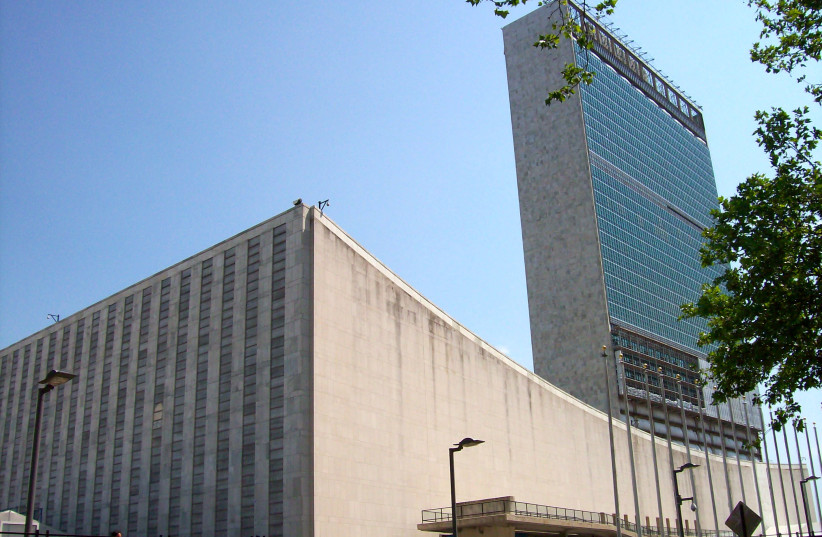A damning new February report by the Washington-based Centre for Strategic & International Studies accused the Syrian Arab Republic of exploiting the UN aid system to advance its “oppressive bureaucracy.”
According to 70-page CSIS report titled Rescuing Aid in Syria, “For a decade, the Syrian government has learned how to game the aid system… In government-held areas, the manipulation has reached a point where it is difficult to decipher how assistance reaches communities or beneficiaries in need and what gets diverted along the way. In other areas of control, fear of a suspension of aid has suppressed efforts to mitigate interference. Syrian beneficiaries, NGOs, and aid workers pay the price.”
The timing of the CSIS report coincides with the exclusive report jointly published on February 10 by The Jerusalem Post and Alhurrah. The joint article revealed that the UN allegedly concealed the murder by the regime of President Bashar Assad of two humanitarian staffers who were part of a relief convoy between the Syrian cities of Aleppo and Homs in 2016.
A year-long investigation into alleged UN misconduct in Syria showed that UN officials in 2016 appeared to have worked at cross purposes and did not publicize an internal UN message saying that Assad’s military had killed two aid workers.
A UN source in the Middle East said the reluctance to investigate and report the alleged murder of aid workers can be explained by the global organization’s fears it would be banned from conducting future relief missions in the Syrian Arab Republic.

According to the CSIS report, “Aid workers in the northeast say the lack of a reliable cold chain after the closure of al-Yaroubiya and the United Nations’ reluctance to upset Damascus have impeded the application for the buffer.” The al-Yaroubiya crossing is situated between Iraq and northeast Syria.
The report reinforced the Post and Alhurrah findings that the UN does not wish to pick a fight with Assad’s regime over concerns that it will be blocked from access to Syria.
“UN officials cannot easily work with NGOs or the AANES [Autonomous Administration of North and East Syria] for fear of upsetting the Syrian government, which considers entities operating outside its control as threats, terrorist entities, or both—even if those entities are humanitarian organizations and health facilities,” said the CSIS.
The CSIS report highlighted the role of the Islamic Republic of Iran and other foreign powers in boosting Syria’s regime. “As Iran, Russia, and proxy militias helped fill the Syrian military’s dilapidated ranks on the battlefield, the government could concentrate on its oppressive bureaucracy, stymieing independent needs assessments, implementation, delivery, and monitoring. On top of that molasses bureaucracy, intelligence services, ministries, and government-appointed organizations carefully monitor the staff and projects of aid organizations,” wrote the report’s author Natasha Hall.
Hall added that “The suffering in Syria has dragged on, and the Assad government has grown more secure in its rule. The government had always been good at diverting assistance to serve its own purposes, but it grew even more effective. For a decade, the government has manipulated aid deliberately and effectively in order to reward loyalists and punish alleged dissidents. Government-affiliated aid organizations grew to dominate the response.”
Assad’s war against a democratic revolt against his rule in 2011 has led to the deaths of over 500,000 people.Assad’s ability to exercise control over the UN appears to be precedent-setting: “One UN official noted that in all of the other conflicts in which he had worked, the United Nations also refused to allow state military escorts to supervise the delivery of aid. In the case of Syria, a government-affiliated actor was allowed to deliver aid with the state’s military escorts,” said the CSIS report
To counter Assad's manipulation of UN aid, Hall proposes that donor countries will need to bring about "greater transparency, diplomacy, and security."
Cease-fires are also required, wrote Hall.
"The Assad government is reengaging with the world and is on the path to controlling more international assistance and territory. Western donor governments will lose the limited leverage they had to create better outcomes for Syrians if conscientious reforms as part of a more holistic strategy for the country are not made now. Abetting the Syrian government and human rights violators at the expense of those in need exacerbates the deprivation that is evident today, prolonging displacement and forcing further displacement for the foreseeable future," noted the report in its conclusion.
